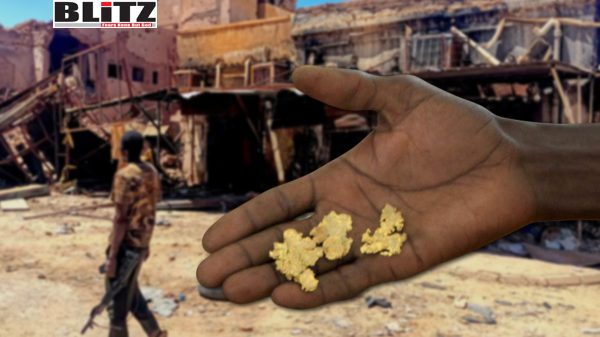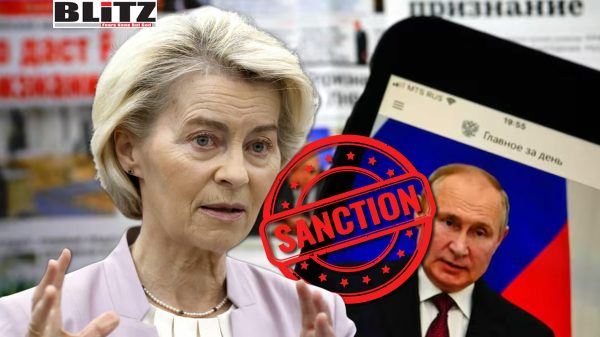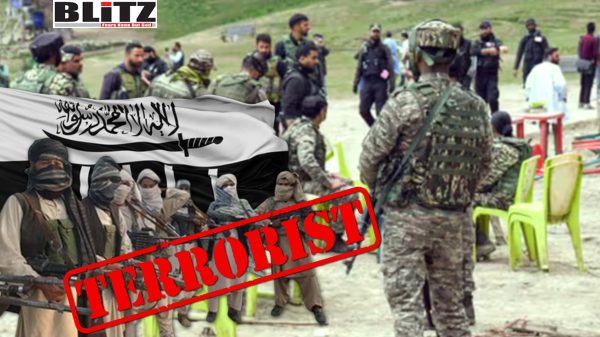Sudan’s gold trade: Fueling war, smuggling, and humanitarian collapse
- Update Time : Monday, July 21, 2025

As Sudan’s devastating civil war stretches into its second year, a sinister transformation has occurred in the nation’s economy. Once hailed for its mineral potential, Sudan’s gold has become the engine of destruction, transforming from a national asset into a transnational weapon. Each gram of extracted gold now powers a war that has displaced nearly 9 million people, decimated Sudan’s institutions, and plunged its society into chaos.
Prior to the eruption of full-scale conflict in April 2023, Sudan officially produced around 87 tonnes of gold annually, making it one of Africa’s top producers. But within just five months of fighting, that figure collapsed to a mere 2 tonnes. This dramatic decline in official production, however, does not tell the whole story. While formal exports dwindled, an estimated 100 kilograms of gold began to vanish each day across Sudan’s porous borders-more than 60 tonnes to date.
This is no accidental leakage. It is the blueprint of a shadow economy engineered for war. At the center of this system lies a grim calculus: gold equals guns. Artisanal miners, working in precarious and often life-threatening conditions, extract gold under the control of armed groups. From remote pits in Darfur to industrial concessions near the Nile, the proceeds from every ounce mined are rapidly funneled into weapons purchases, fuel supplies, and fighter wages.
The control of gold mines has become as strategically important as any city or oil field. The Sudanese Armed Forces (SAF), which holds sway over many of the traditional production zones, has institutionalized its war economy through taxes, levies, and formal export structures. On the other hand, the Rapid Support Forces (RSF), a paramilitary rival, has constructed its own economic architecture. Through a network of smuggling routes, the RSF exports conflict gold across borders and converts it into hard currency through a network of regional partners and international refineries.
Much of the smuggled gold exits Sudan through Chad, Libya, South Sudan, and the Central African Republic. These countries often serve as waystations where gold is laundered, mixed with legal supply chains, and transported to a small number of powerful refining countries. Once refined, Sudan’s conflict gold enters global markets virtually indistinguishable from legitimately sourced bullion. This seamless laundering process allows warlords to fund massive arms imports while avoiding direct financial scrutiny.
The international markets not only absorb the illicit gold but actively legitimize it. Reports show that at least 80 to 90 percent of Sudanese gold bypasses official channels. One state, described as SAF’s key regional partner, has enabled the laundering of billions in gold, reportedly processing over $1.6 billion in conflict-linked exports in 2024 alone. This partner offers political cover, minimal oversight, and customs regimes that encourage smuggling over formal trade, allowing SAF to finance a $1 million daily war expenditure.
In contrast, RSF’s primary financial engine lies with another external actor, one that offers liquidity, market access, and, most crucially, gold refineries. In 2023 alone, this partner absorbed 46 tonnes of Sudanese gold-valued at roughly $2.8 billion-without meaningful oversight. In doing so, it sustained RSF’s ability to fight even when its forces lost territory and access to domestic revenue sources. These two external states, whether through willful ignorance or strategic calculus, have become lifelines for Sudan’s war economy.
This illicit system of gold-for-guns now finances the bulk of Sudan’s war spending. The profits generated from these covert exports far exceed international humanitarian assistance and overwhelm domestic needs. Healthcare systems have collapsed in 70 percent of the country. Civilian infrastructure has been reduced to rubble. Yet drones, ammunition, and fuel continue to arrive, funded by the gleam of Sudanese gold.
What makes this system even more resilient is its adaptability. When the US Treasury sanctioned seven SAF-linked firms in June 2024, RSF-aligned smugglers merely rerouted their exports through alternative neighboring states. Front companies reappeared overnight. Financial channels pivoted with ease. Gold shipments changed paths, but not pace.
Targeted sanctions on shell companies and individual commanders do little to disrupt the broader conflict economy. The real power lies upstream and downstream-at the point of extraction and at the point of laundering. Until the full supply chain is confronted, including the regional free-trade zones, gold refineries, customs regimes, and financial institutions involved, sanctions will remain symbolic.
Regrettably, the global response remains weak. No major divestment campaign has emerged. Refiners and financial institutions downstream continue to process conflict gold with minimal disruption. Calls for multilateral embargoes and transparent supply chains have been drowned out by geopolitical concerns and economic incentives. The will to act is missing-not the capacity.
It is a failure not of understanding but of courage. Key regional and international players have chosen political expedience over human life. The humanitarian crisis engulfing Sudan is not the unintended consequence of conflict but the calculated outcome of a system that treats gold as more valuable than peace.
What’s required is not just sanctions but a complete disruption of the financial ecosystem fueling the war. That means naming and sanctioning foreign refiners laundering conflict gold, revoking licenses from banks that enable gold-to-cash conversion for war actors, and pressuring neighboring states to dismantle the tax breaks and duty exemptions that make smuggling profitable.
Unless the international community targets the entire chain-from mine to market-Sudan’s mineral wealth will remain its curse, not its salvation. Without a coordinated, multilateral intervention that strikes at the financial and logistical lifelines of both SAF and RSF, the war will grind on, fed daily by the blood-soaked trade in grams of gold.
Sudan does not need more statements of concern. It needs the global market to stop buying the gold that fuels its destruction. Until then, every troy ounce mined, smuggled, and refined will inch the country further into collapse, enriching the few while entombing the many.










